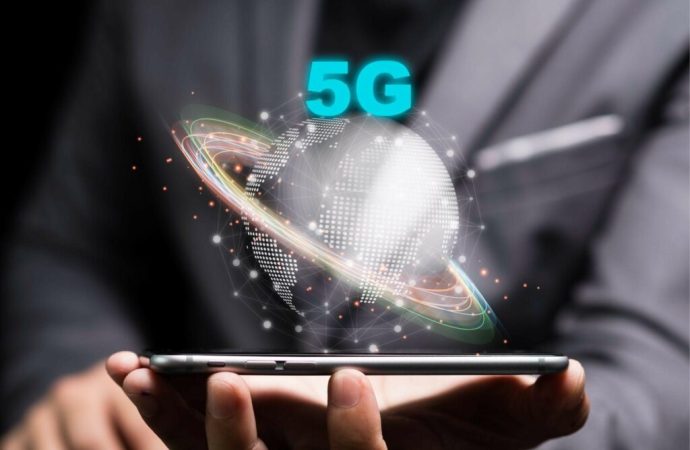Introduction The advent of 5G technology heralds a new era in telecommunications, promising to revolutionize numerous industries, including streaming and entertainment. With its unprecedented speed, low latency, and enhanced connectivity, 5G technology is poised to transform how content is delivered and consumed. This article delves into the various ways 5G technology is impacting streaming and
Introduction
The advent of 5G technology heralds a new era in telecommunications, promising to revolutionize numerous industries, including streaming and entertainment. With its unprecedented speed, low latency, and enhanced connectivity, 5G technology is poised to transform how content is delivered and consumed. This article delves into the various ways 5G technology is impacting streaming and entertainment, examining the benefits, challenges, and future prospects.
Understanding 5G Technology

Image by: Google.com
- What is 5G?
5G, or the fifth generation of mobile network technology, is the latest iteration in the evolution of wireless communication. Unlike its predecessors, 5G offers significantly higher data rates, reduced latency, massive network capacity, and improved reliability. These features make it a game-changer for various applications, particularly in the realm of streaming and entertainment.
- Key Features of 5G
- Speed: 5G networks can deliver speeds up to 100 times faster than 4G LTE, enabling seamless streaming of high-definition content.
- Low Latency: With latency as low as 1 millisecond, 5G ensures near-instantaneous data transfer, crucial for real-time applications like live streaming and interactive gaming.
- Capacity: 5G can support a vast number of connected devices simultaneously, ensuring consistent performance even in densely populated areas.
- Reliability: Enhanced reliability ensures stable connections, minimizing disruptions during streaming sessions.
The Evolution of Streaming

Image by: Google.com
- The Rise of Streaming Services
Streaming services have become an integral part of modern entertainment, offering on-demand access to a vast library of content. Platforms like Netflix, Amazon Prime Video, Disney+, and Hulu have revolutionized how people consume media, shifting from traditional cable TV to internet-based streaming.
- Challenges Faced by Streaming Services
Despite their popularity, streaming services face several challenges, including buffering issues, bandwidth limitations, and network congestion. These challenges can degrade the user experience, particularly when streaming high-definition or 4K content.
How 5G Technology Enhances Streaming

Image by: Google.com
- Improved Streaming Quality
One of the most significant impacts of 5G technology on streaming is the enhancement of video quality. The high-speed data transfer capabilities of 5G allow for smoother streaming of high-definition, 4K, and even 8K content without buffering. This ensures a more immersive viewing experience for users.
- Reduced Latency
Low latency is crucial for real-time applications such as live streaming and interactive content. With 5G, latency is significantly reduced, enabling seamless live streaming of events, concerts, and sports. This is particularly beneficial for platforms that offer live broadcasts, ensuring that viewers receive content in real-time without delays.
- Enhanced Mobile Streaming
5G technology enhances mobile streaming by providing faster and more reliable connections on the go. Whether users are commuting, traveling, or simply away from home, they can enjoy high-quality streaming without interruptions. This mobility factor is a significant advantage, as it aligns with the increasing trend of consuming content on mobile devices.
- Virtual Reality (VR) and Augmented Reality (AR)
5G technology is a catalyst for the growth of VR and AR in the entertainment industry. The low latency and high bandwidth of 5G networks are essential for delivering immersive VR and AR experiences. This opens up new possibilities for interactive storytelling, gaming, and virtual events, providing users with a more engaging and interactive form of entertainment.
The Impact on Content Creators

Image by: Google.com
- New Opportunities for Creators
5G technology provides content creators with new opportunities to innovate and experiment with different formats. The ability to stream high-quality content in real-time enables creators to engage with their audience more effectively. Additionally, the integration of VR and AR can lead to the development of unique and immersive content that was previously not feasible.
- Enhanced Collaboration
5G technology facilitates enhanced collaboration among content creators, regardless of their geographical location. With faster and more reliable connections, creators can collaborate on projects in real-time, share large files seamlessly, and conduct live sessions without technical hindrances. This fosters creativity and allows for the production of high-quality content.
The Future of Entertainment

Image by: Google.com
- Personalized Experiences
The combination of 5G technology and advanced data analytics paves the way for personalized entertainment experiences. Streaming platforms can leverage user data to offer tailored content recommendations, ensuring that viewers receive content that aligns with their preferences. This level of personalization enhances user satisfaction and engagement.
- Smart Homes and Connected Devices
The proliferation of smart homes and connected devices is another area where 5G technology will have a significant impact. With 5G, devices such as smart TVs, speakers, and home assistants can communicate seamlessly, creating a cohesive entertainment ecosystem. Users can enjoy a more integrated and convenient entertainment experience, with the ability to control and access content across various devices effortlessly.
- The Role of AI and Machine Learning
Artificial Intelligence (AI) and Machine Learning (ML) are set to play a crucial role in the future of entertainment. 5G technology enables the efficient processing of large datasets, allowing AI and ML algorithms to analyze user behavior, preferences, and trends. This data-driven approach can lead to the creation of more engaging and relevant content, as well as improved content discovery and recommendation systems.
Challenges and Considerations

Image by: Google.com
- Infrastructure and Deployment
The widespread adoption of 5G technology requires significant infrastructure development and investment. Building the necessary network infrastructure, including the installation of small cells and fiber optic cables, is a complex and costly process. Additionally, ensuring coverage in rural and remote areas poses a challenge that needs to be addressed.
- Data Privacy and Security
With the increased connectivity and data transfer capabilities of 5G, data privacy and security become paramount. Streaming platforms and content creators must implement robust security measures to protect user data and prevent unauthorized access. Additionally, clear policies and regulations regarding data usage and privacy need to be established to safeguard user information.
- Cost and Accessibility
The cost of 5G-enabled devices and services may initially be a barrier to widespread adoption. Ensuring that 5G technology is accessible and affordable for all users is crucial to its success. Efforts should be made to bridge the digital divide and provide equal access to the benefits of 5G technology, regardless of socioeconomic status or geographical location.
Conclusion
The impact of 5G technology on streaming and entertainment is profound, offering numerous benefits and opportunities for both content creators and consumers. With its high-speed data transfer, low latency, and enhanced connectivity, 5G technology is set to revolutionize the way content is delivered and consumed. From improved streaming quality and reduced latency to the growth of VR and AR experiences, 5G is shaping the future of entertainment. However, addressing challenges related to infrastructure, data privacy, and accessibility is essential to fully realize the potential of 5G technology. As the world continues to embrace this transformative technology, the streaming and entertainment industry is poised for a new era of innovation and growth.
















